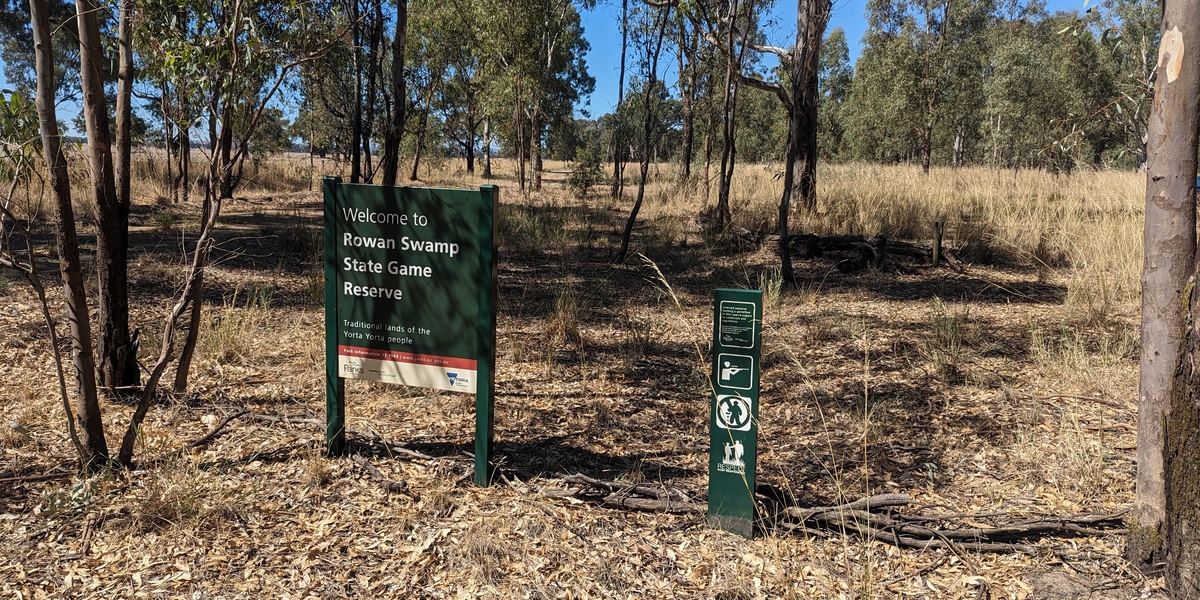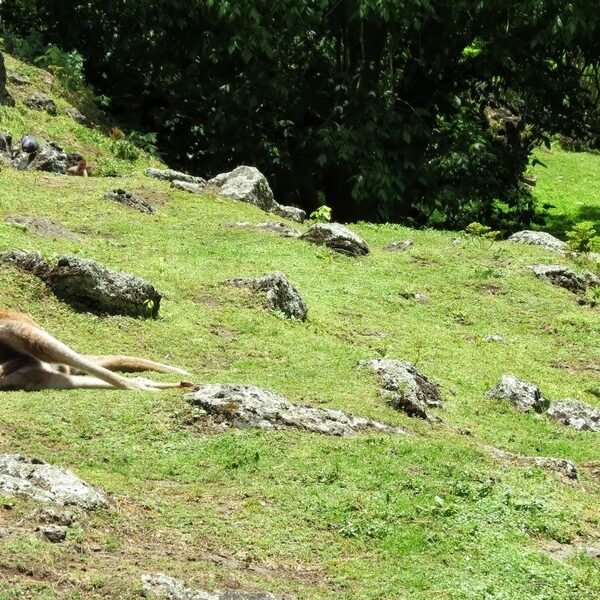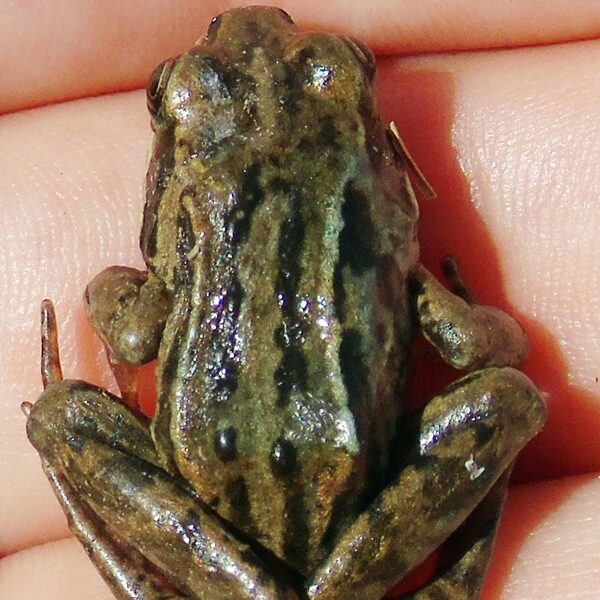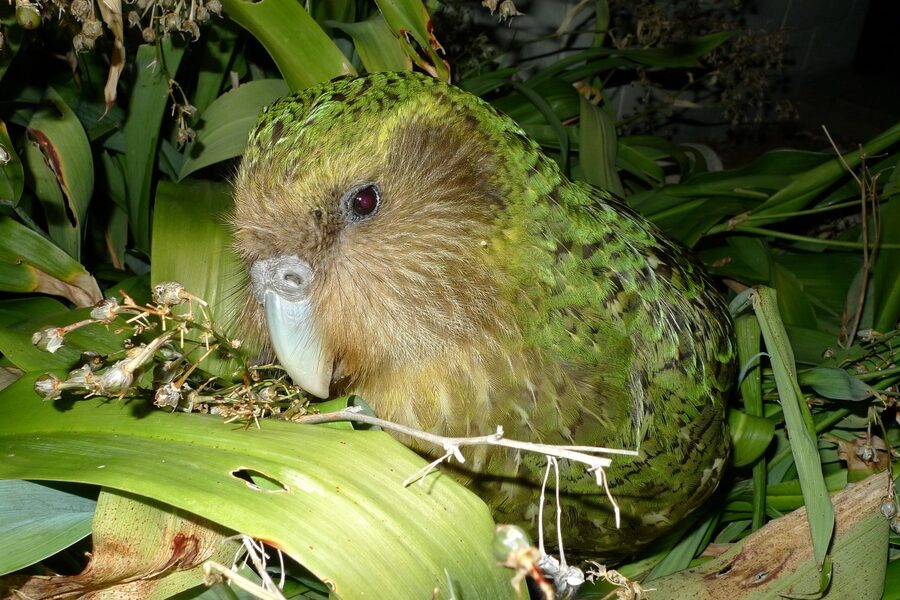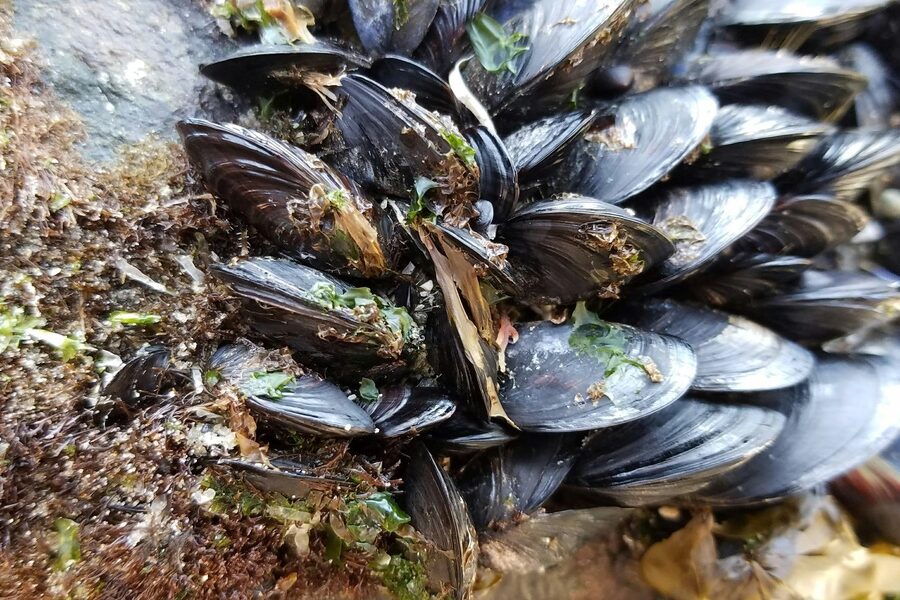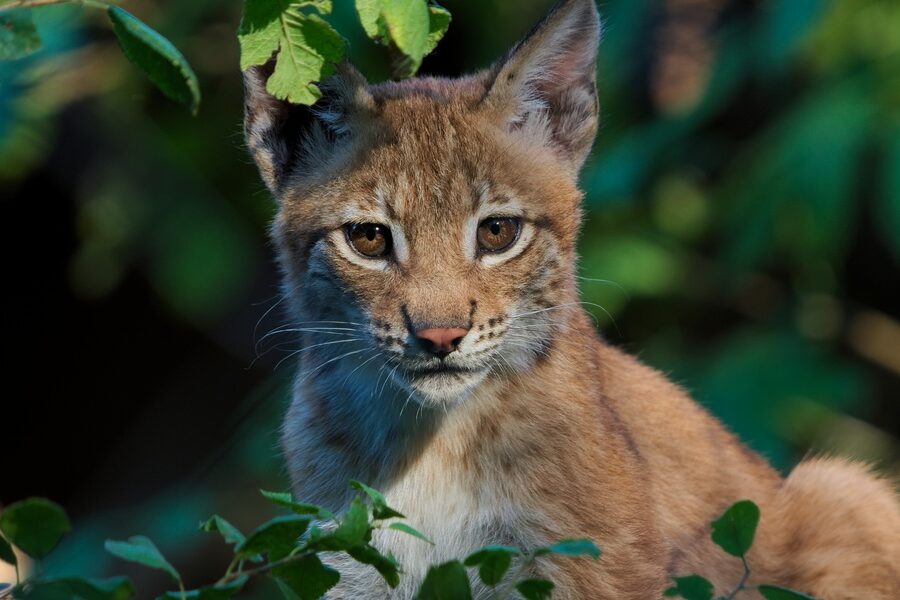Swamps, with their enigmatic mix of land and water, represent some of Earth’s most challenging yet remarkably rich ecosystems. These wetlands, often characterized by dense vegetation, murky waters, and fluctuating conditions, are natural strongholds for biodiversity. Life here requires specialized adaptations, leading to the evolution of incredible and often elusive species perfectly suited to these unique environments.
It’s within these watery realms that truly unique creatures thrive, many teetering on the brink. Our comprehensive list dives deep into this world, revealing 93 rare swamp animals. This collection highlights the incredible diversity, from the agile Allen’s Swamp Monkey found in Africa’s dense forests to the elusive Zapata Sparrow hidden in Cuba’s wetlands. For each, you’ll find detailed information organized by Scientific Name, Conservation Status, Avg. Length (m), and Primary Region below.
What makes an animal “rare” in a swamp environment?
Rarity in a swamp often stems from a combination of factors, including naturally small population sizes, a very restricted habitat range, or highly specialized dietary and living requirements. Many swamp species are also acutely vulnerable to environmental changes, habitat loss, or pollution, which can rapidly diminish their numbers and push them towards endangerment, making them rare and difficult to encounter.
Why are swamps such crucial habitats for these unique creatures?
Swamps provide a critical ecological niche that supports a remarkable array of life. Their complex structure, with varying water levels, rich soil, and abundant plant life, offers shelter, breeding grounds, and a reliable food source for many species found nowhere else. These environments also play vital roles in water purification, flood control, and carbon sequestration, indirectly supporting the rare animals that depend on them.
Rare Swamp Animals
| Common Name | Scientific Name | Conservation Status | Avg. Length (m) | Primary Region |
|---|---|---|---|---|
| Shoebill | Balaeniceps rex | Vulnerable | 1.2 | East-Central Africa |
| Proboscis Monkey | Nasalis larvatus | Endangered | 0.7 | Borneo |
| Pygmy Hippopotamus | Choeropsis liberiensis | Endangered | 0.8 | West Africa |
| White-winged Duck | Asarcornis scutulata | Endangered | 0.75 | Southeast Asia |
| Storm’s Stork | Ciconia stormi | Endangered | 0.8 | Indonesia & Malaysia |
| Masked Finfoot | Heliopais personatus | Endangered | 0.5 | Southeast Asia |
| Sumatran Tiger | Panthera tigris sumatrae | Critically Endangered | 2.4 | Sumatra, Indonesia |
| Bog Turtle | Glyptemys muhlenbergii | Critically Endangered | 0.1 | Eastern USA |
| Dusky Gopher Frog | Lithobates sevosus | Critically Endangered | 0.08 | Mississippi, USA |
| Zapata Rail | Cyanolimnas cerverai | Critically Endangered | 0.29 | Cuba |
| Orinoco Crocodile | Crocodylus intermedius | Critically Endangered | 5 | Orinoco River Basin, South America |
| Philippine Crocodile | Crocodylus mindorensis | Critically Endangered | 3 | Philippines |
| Siamese Crocodile | Crocodylus siamensis | Critically Endangered | 3 | Southeast Asia |
| Lower Keys Marsh Rabbit | Sylvilagus palustris hefneri | Endangered | 0.4 | Florida Keys, USA |
| Hispaniolan Slider | Trachemys decorata | Critically Endangered | 0.3 | Hispaniola |
| Zapata Sparrow | Torreornis inexpectata | Endangered | 0.16 | Cuba |
| Black-spotted Tree Frog | Leptopelis uluguruensis | Critically Endangered | 0.05 | Tanzania |
| Ornate Licorice Gourami | Parosphromenus ornatus | Critically Endangered | 0.03 | Bangka Island, Indonesia |
| Ivory-billed Woodpecker | Campephilus principalis | Critically Endangered (Possibly Extinct) | 0.5 | Southeastern USA & Cuba |
| Spring Pygmy Sunfish | Elassoma alabamae | Critically Endangered | 0.025 | Alabama, USA |
| Giant Otter | Pteronura brasiliensis | Endangered | 1.7 | South America |
| Red-crowned Crane | Grus japonensis | Vulnerable | 1.5 | East Asia |
| Alligator Snapping Turtle | Macrochelys temminckii | Vulnerable | 0.7 | Southeastern USA |
| Satanic Leaf-tailed Gecko | Uroplatus phantasticus | Least Concern (but rare in trade) | 0.09 | Madagascar |
| Sumatran Rhinoceros | Dicerorhinus sumatrensis | Critically Endangered | 2.8 | Sumatra & Borneo |
| Fishing Cat | Prionailurus viverrinus | Vulnerable | 0.7 | Southeast Asia |
| White-bellied Heron | Ardea insignis | Critically Endangered | 1.27 | Himalayan Foothills |
| Madagascar Pochard | Aythya innotata | Critically Endangered | 0.46 | Madagascar |
| Black-faced Spoonbill | Platalea minor | Endangered | 0.76 | East Asia |
| Helmeted Hornbill | Rhinoplax vigil | Critically Endangered | 1.2 | Southeast Asia |
| Titicaca Water Frog | Telmatobius culeus | Critically Endangered | 0.2 | Lake Titicaca, South America |
| Lake Oku Clawed Frog | Xenopus longipes | Critically Endangered | 0.035 | Cameroon |
| Arapaima | Arapaima gigas | Data Deficient | 3 | Amazon Basin |
| Golden-crowned Sifaka | Propithecus tattersalli | Critically Endangered | 0.9 | Madagascar |
| Peruvian Black Spider Monkey | Ateles chamek | Endangered | 0.6 | Western Amazon Basin |
| Mangrove Finch | Camarhynchus heliobates | Critically Endangered | 0.14 | Galápagos Islands |
| Bengal Florican | Houbaropsis bengalensis | Critically Endangered | 0.66 | Indian Subcontinent & SE Asia |
| Australasian Bittern | Botaurus poiciloptilus | Endangered | 0.7 | Australia & New Zealand |
| Yellow-crested Cockatoo | Cacatua sulphurea | Critically Endangered | 0.33 | Indonesia & Timor-Leste |
| Spoon-billed Sandpiper | Calidris pygmaea | Critically Endangered | 0.15 | Northeast Russia (breeding) |
| Bornean Flat-headed Frog | Barbourula kalimantanensis | Endangered | 0.07 | Borneo |
| Eastern Massasauga Rattlesnake | Sistrurus catenatus | Threatened (US FWS) | 0.6 | North America |
| Wood Turtle | Glyptemys insculpta | Endangered | 0.2 | North America |
| Blanding’s Turtle | Emydoidea blandingii | Endangered | 0.22 | North America |
| Spotted Pond Turtle | Geoclemys hamiltonii | Endangered | 0.4 | South Asia |
| Three-striped Roofed Turtle | Batagur dhongoka | Critically Endangered | 0.48 | India & Bangladesh |
| Red-crowned Roofed Turtle | Batagur kachuga | Critically Endangered | 0.56 | South Asia |
| Swampfish | Chologaster cornuta | Vulnerable | 0.07 | Southeastern USA |
| Okefenokee Pygmy Sunfish | Elassoma okefenokee | Least Concern (but highly localized) | 0.03 | Southeastern USA |
| Water Vole | Arvicola amphibius | Endangered (in UK) | 0.18 | Europe & Asia |
| Maned Wolf | Chrysocyon brachyurus | Near Threatened | 1 | South America |
| Malayan Sun Bear | Helarctos malayanus | Vulnerable | 1.4 | Southeast Asia |
| Baird’s Tapir | Tapirus bairdii | Endangered | 2 | Central & South America |
| Giant Armadillo | Priodontes maximus | Vulnerable | 0.9 | South America |
| Blue-throated Macaw | Ara glaucogularis | Critically Endangered | 0.85 | Bolivia |
| Lear’s Macaw | Anodorhynchus leari | Endangered | 0.75 | Brazil |
| Hyacinth Macaw | Anodorhynchus hyacinthinus | Vulnerable | 1 | South America |
| Crested Ibis | Nipponia nippon | Endangered | 0.6 | East Asia |
| Hooded Grebe | Podiceps gallardoi | Critically Endangered | 0.34 | Patagonia |
| Cantor’s Giant Softshell Turtle | Pelochelys cantorii | Critically Endangered | 1 | Southeast Asia |
| Painted Terrapin | Batagur borneoensis | Critically Endangered | 0.6 | Southeast Asia |
| Malayan Peacock-Pheasant | Polyplectron malacense | Vulnerable | 0.5 | Malay Peninsula |
| Green Peafowl | Pavo muticus | Endangered | 2 | Southeast Asia |
| Congo Peafowl | Afropavo congensis | Vulnerable | 0.67 | Congo Basin |
| Greater Adjutant | Leptoptilos dubius | Endangered | 1.4 | South Asia |
| Allen’s Swamp Monkey | Allenopithecus nigroviridis | Least Concern (but swamp specialist) | 0.5 | Congo Basin |
| De Brazza’s Monkey | Cercopithecus neglectus | Least Concern (but swamp specialist) | 0.55 | Central Africa |
| Florida Bonneted Bat | Eumops floridanus | Endangered | 0.15 | Florida, USA |
| New Guinea Singing Dog | Canis lupus hallstromi | Data Deficient | 0.4 | New Guinea |
| Cuban Crocodile | Crocodylus rhombifer | Critically Endangered | 2.3 | Cuba |
| Striped Newt | Notophthalmus perstriatus | Near Threatened | 0.08 | Southeastern USA |
| Mississippi Sandhill Crane | Grus canadensis pulla | Critically Endangered | 1.2 | Mississippi, USA |
| Saltmarsh Sparrow | Ammospiza caudacuta | Vulnerable | 0.13 | Eastern USA |
| Black Rail | Laterallus jamaicensis | Endangered | 0.14 | The Americas |
| Macaya Breast-spot Frog | Eleutherodactylus thorectes | Critically Endangered | 0.015 | Haiti |
| La Hotte Glanded Frog | Eleutherodactylus glandulifer | Critically Endangered | 0.06 | Haiti |
| Titicaca Grebe | Rollandia microptera | Endangered | 0.3 | Lake Titicaca, South America |
| Junin Grebe | Podiceps taczanowskii | Critically Endangered | 0.35 | Peru |
| Baer’s Pochard | Aythya baeri | Critically Endangered | 0.45 | East Asia |
| Bornean Peacock-Pheasant | Polyplectron schleiermacheri | Endangered | 0.4 | Borneo |
| Siau Scops-Owl | Otus siaoensis | Critically Endangered | 0.17 | Siau Island, Indonesia |
| Gray’s Monitor | Varanus olivaceus | Vulnerable | 1.8 | Philippines |
| Panay Monitor Lizard | Varanus mabitang | Endangered | 1.5 | Panay Island, Philippines |
| Central American River Turtle | Dermatemys mawii | Critically Endangered | 0.65 | Central America |
| Roti Island Snake-necked Turtle | Chelodina mccordi | Critically Endangered | 0.22 | Roti Island, Indonesia |
| McCord’s Box Turtle | Cuora mccordi | Critically Endangered | 0.14 | Guangxi, China |
| Golden Coin Turtle | Cuora trifasciata | Critically Endangered | 0.2 | China & Vietnam |
| Vietnamese Pond Turtle | Mauremys annamensis | Critically Endangered | 0.2 | Vietnam |
| Yellow-headed Temple Turtle | Heosemys annandalii | Endangered | 0.5 | Southeast Asia |
| Striped Narrow-mouthed Frog | Microhyla heymonsi | Least Concern (but swamp specialist) | 0.025 | Southeast Asia |
| Cryptic Treehunter | Cichlocolaptes mazarbarnetti | Critically Endangered (Possibly Extinct) | 0.22 | Northeast Brazil |
| Javan Trogon | Apalharpactes reinwardtii | Vulnerable | 0.3 | Java, Indonesia |
| Largetooth Sawfish | Pristis pristis | Critically Endangered | 7 | Worldwide (Tropical) |
Images and Descriptions
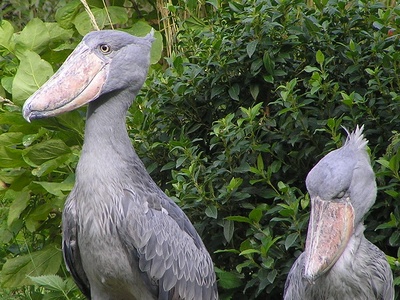
Shoebill
A massive, prehistoric-looking bird with a unique shoe-shaped bill, known for standing motionless for hours while hunting lungfish in freshwater swamps.
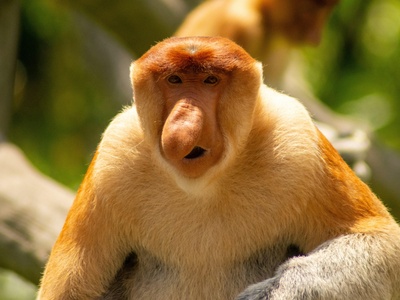
Proboscis Monkey
Famous for the male’s large, fleshy nose, this monkey is a skilled swimmer that lives almost exclusively in the mangrove and riverine swamp forests of Borneo.
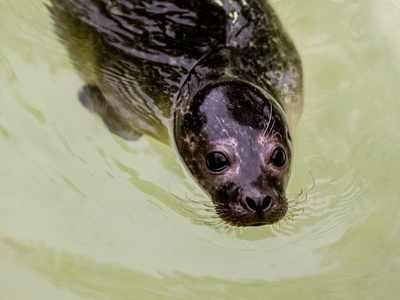
Pygmy Hippopotamus
A miniature, solitary version of its larger cousin, this hippo spends its days hiding in the dense swamps and forests of West Africa, emerging at night to feed.
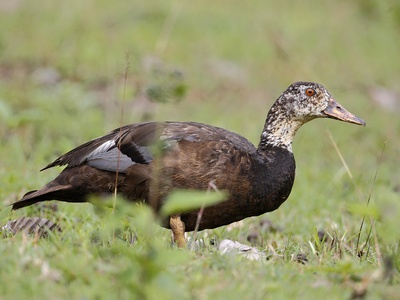
White-winged Duck
A large, secretive duck that roosts and nests in trees within secluded swamp forests, known for its ghostly, honking calls.
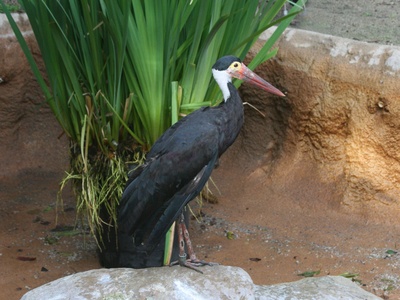
Storm’s Stork
One of the rarest storks in the world, this solitary bird quietly stalks fish and amphibians along the shaded streams of pristine peat swamp forests.
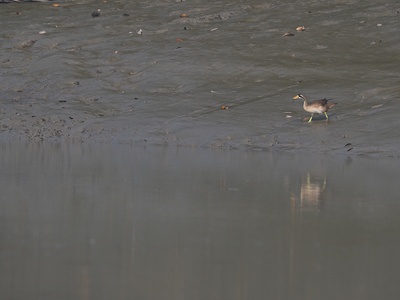
Masked Finfoot
An elusive waterbird, resembling a cross between a duck and a rail, that expertly navigates the dense vegetation of mangrove swamps and forested wetlands.
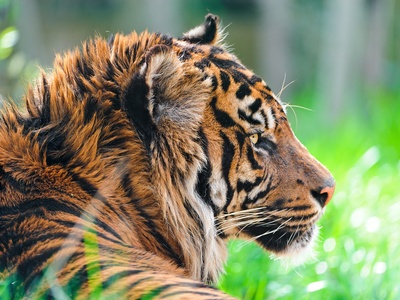
Sumatran Tiger
The smallest tiger subspecies, it is uniquely adapted to hunting in the dense peat swamps of Sumatra, with partially webbed paws that make it a strong swimmer.
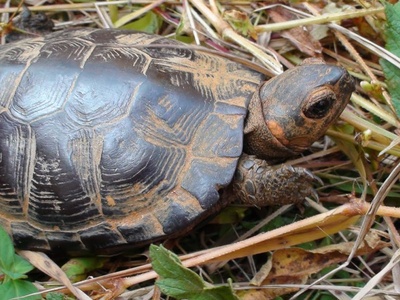
Bog Turtle
North America’s smallest turtle, this tiny reptile is a specialist of sunny, spring-fed wetlands like bogs and fens, where it burrows into the soft mud.
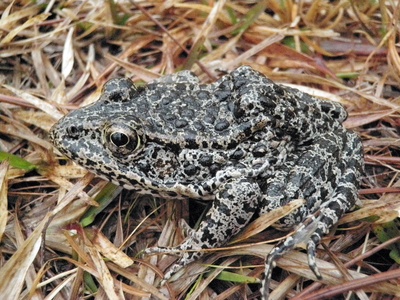
Dusky Gopher Frog
One of the most endangered frogs in the world, it relies on temporary ponds within longleaf pine savannas and is known for covering its eyes with its front feet when threatened.
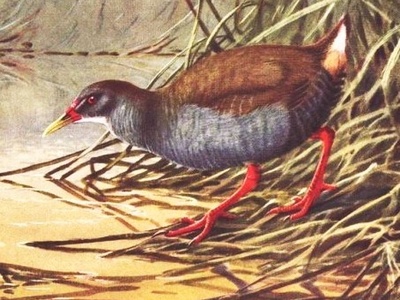
Zapata Rail
A nearly flightless bird that lives only in a single, remote swamp in Cuba, making it one of the most geographically restricted and endangered birds on Earth.
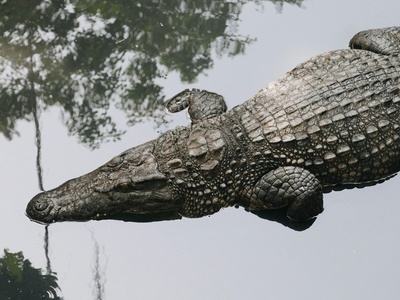
Orinoco Crocodile
One of the largest and rarest crocodiles, this species struggles to survive in the riverine forests and seasonal wetlands of its namesake river.
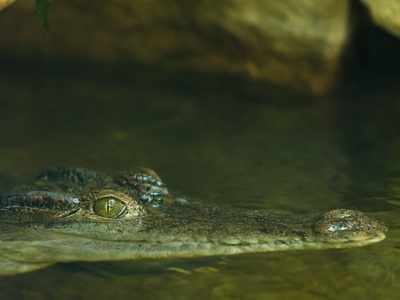
Philippine Crocodile
A relatively small but critically endangered freshwater crocodile that prefers the quiet marshes, ponds, and swamps of the Philippine islands.
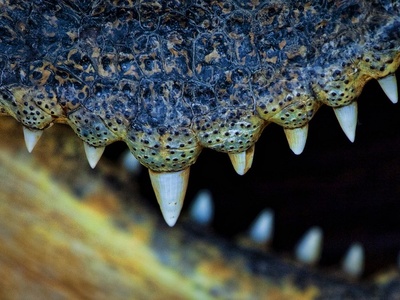
Siamese Crocodile
Once widespread, this crocodile is now functionally extinct in most of its range, with small populations clinging to survival in remote swamps and wetlands.
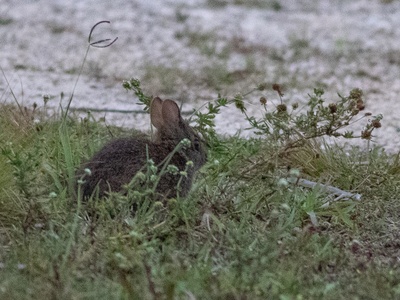
Lower Keys Marsh Rabbit
An endangered subspecies of marsh rabbit, it is the smallest of its kind and can only be found in the specific salt marshes and mangrove swamps of the lower Florida Keys.
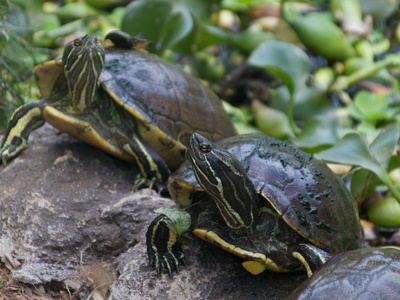
Hispaniolan Slider
A critically endangered freshwater turtle, its remaining populations are confined to specific swamps, ponds, and lagoons in the Dominican Republic and Haiti.
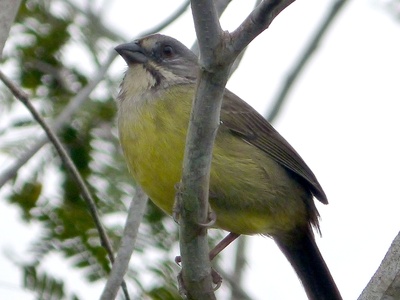
Zapata Sparrow
This small bird has three distinct subspecies, each adapted to a different habitat, including one that lives exclusively in the sawgrass swamps of the Zapata Peninsula.
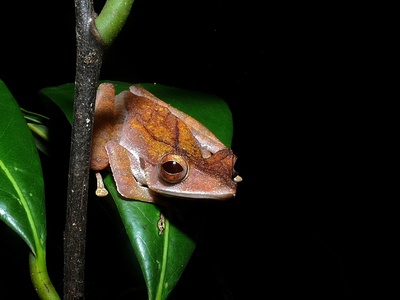
Black-spotted Tree Frog
A tiny, elusive frog that lives its entire life in the canopy of high-altitude montane swamp forests, making it incredibly difficult to study.
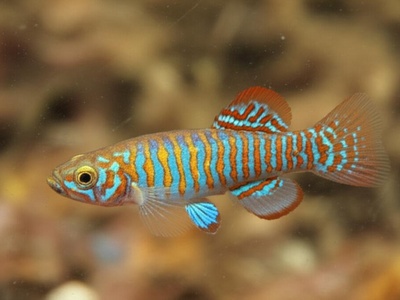
Ornate Licorice Gourami
A tiny, brilliantly colored fish that lives only in the acidic, blackwater peat swamps of a single island, its habitat is rapidly disappearing due to deforestation.
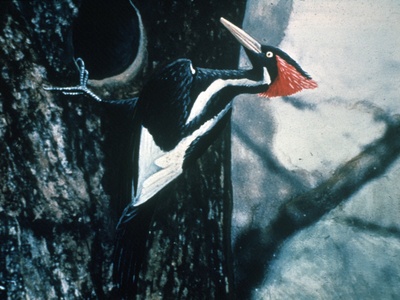
Ivory-billed Woodpecker
The legendary “Lord God Bird,” it was a specialist of old-growth bottomland hardwood swamps. While feared extinct, unconfirmed sightings offer a glimmer of hope.
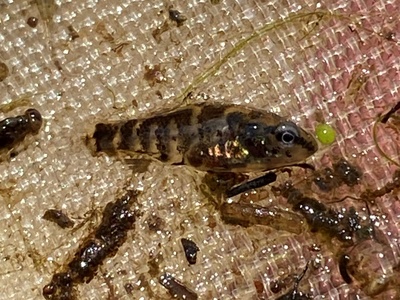
Spring Pygmy Sunfish
A minuscule fish, once thought extinct for 70 years, that survives in just one heavily vegetated spring-fed swamp system in Northern Alabama.
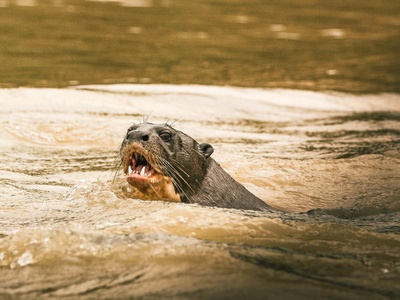
Giant Otter
The world’s longest weasel, this highly social otter lives in family groups in slow-moving rivers and swampy lakes within the Amazon, Pantanal, and Orinoco basins.
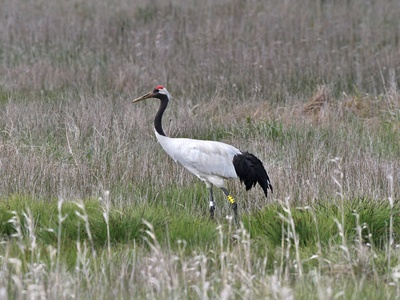
Red-crowned Crane
A symbol of luck and longevity, this majestic crane performs elaborate courtship dances in the frozen wetlands and marshes where it breeds.
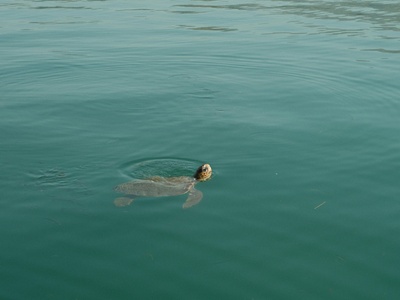
Alligator Snapping Turtle
A primeval-looking turtle with a powerful bite, it uses a worm-like lure on its tongue to attract fish while camouflaged in the murky depths of swamps and rivers.
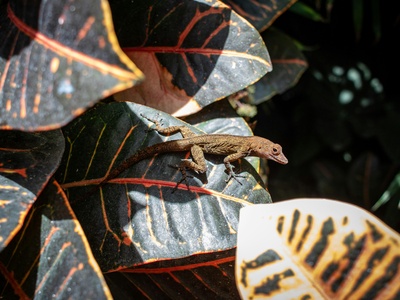
Satanic Leaf-tailed Gecko
A master of camouflage, this small gecko perfectly mimics a dead leaf, allowing it to blend in seamlessly with the leaf litter of the forest and swamp floors of Madagascar.
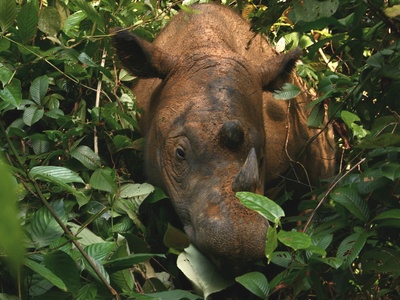
Sumatran Rhinoceros
The smallest and hairiest rhino species, it navigates dense montane swamp forests and rainforests, communicating with high-pitched whistles.
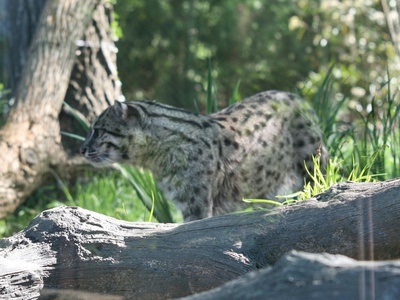
Fishing Cat
A medium-sized wild cat uniquely adapted for a semi-aquatic life, with partially webbed feet and a love for hunting fish in swamps, mangroves, and marshes.
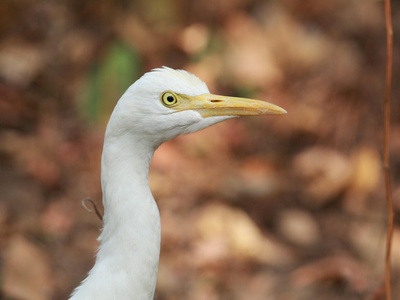
White-bellied Heron
One of the world’s rarest herons, this large, solitary bird depends on pristine, undisturbed riverine wetlands and swamps for its survival.
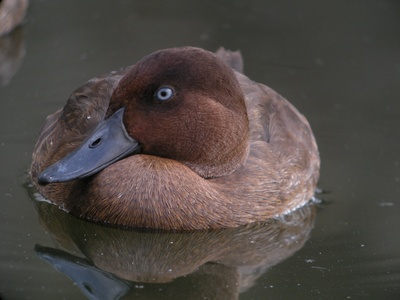
Madagascar Pochard
Once believed extinct, this diving duck was rediscovered in 2006 on a single volcanic lake, and conservationists are now reintroducing it to suitable swampy wetlands.
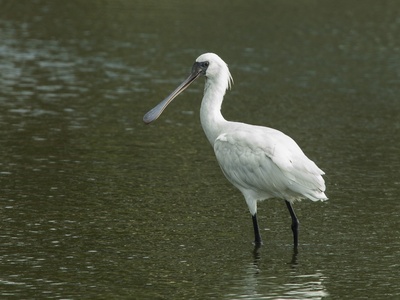
Black-faced Spoonbill
The rarest of all spoonbills, this bird uses its unique, spatulate bill to sweep for invertebrates in the coastal mudflats and mangrove swamps where it winters.
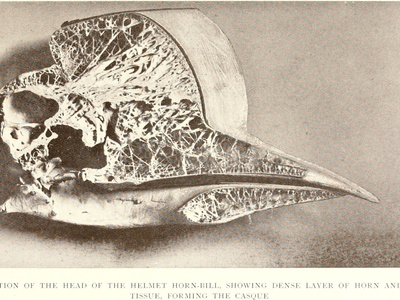
Helmeted Hornbill
Hunted for its unique solid “casque,” this huge bird is a vital seed disperser in swamp forests and rainforests, but its loud calls now echo in silent forests.
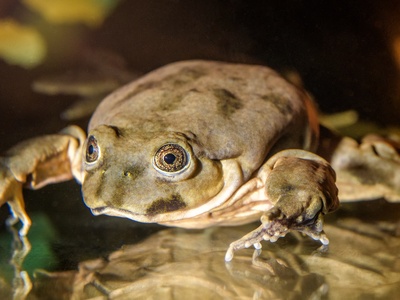
Titicaca Water Frog
Known as the “scrotum frog” for its saggy skin folds, it lives in the high-altitude, cold waters of Lake Titicaca and its surrounding swampy reed beds, breathing entirely through its skin.
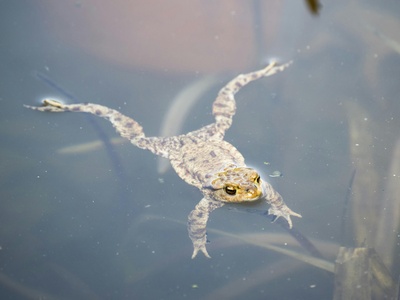
Lake Oku Clawed Frog
This small aquatic frog is found only in a single high-altitude lake surrounded by montane swamp forest in Cameroon, making it exceptionally vulnerable.
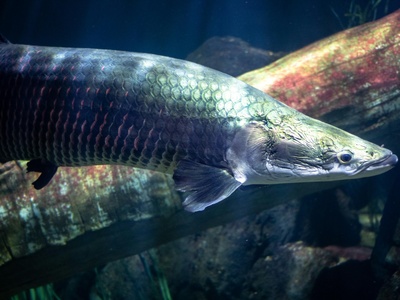
Arapaima
One of the largest freshwater fish, this air-breathing giant can grow to immense sizes and thrives in the slow-moving, swampy backwaters of the Amazon River.
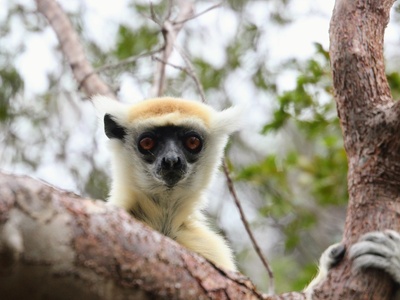
Golden-crowned Sifaka
A striking lemur with a golden-orange crown, its small remaining population is restricted to a small patch of gallery and swamp forest in northern Madagascar.
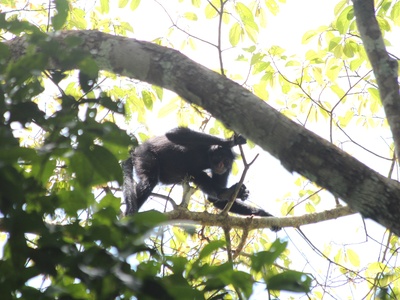
Peruvian Black Spider Monkey
This long-limbed primate is a crucial seed disperser, swinging through the canopies of seasonally flooded swamp forests in Peru, Bolivia, and Brazil.
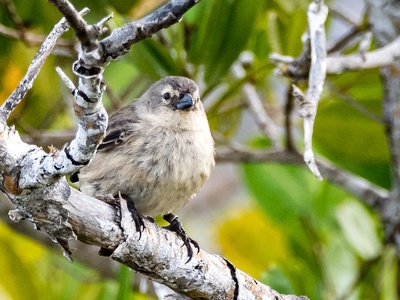
Mangrove Finch
One of Darwin’s famous finches, this is among the rarest birds in the world, surviving only in two small mangrove swamp areas in the Galápagos.
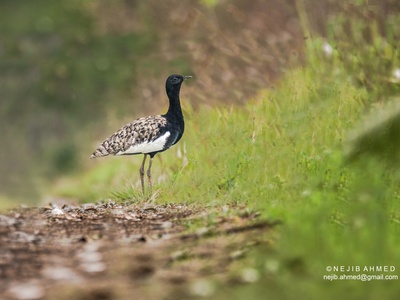
Bengal Florican
A critically endangered bustard, males perform spectacular jumping displays in the grasslands and floodplain swamps that are rapidly vanishing.
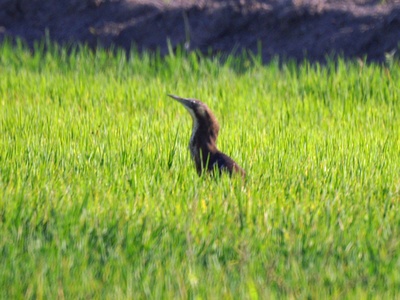
Australasian Bittern
A master of camouflage, this secretive, stocky bird freezes with its bill pointing skyward to blend in with the reeds of freshwater swamps and marshes.
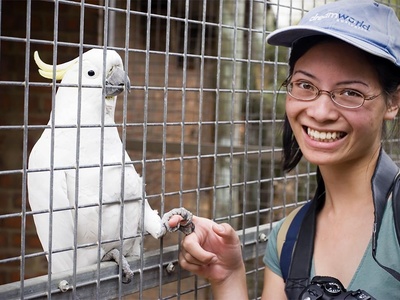
Yellow-crested Cockatoo
This beautiful cockatoo is on the brink of extinction due to the illegal pet trade and habitat loss, with small populations surviving in mangroves and swamp forests.
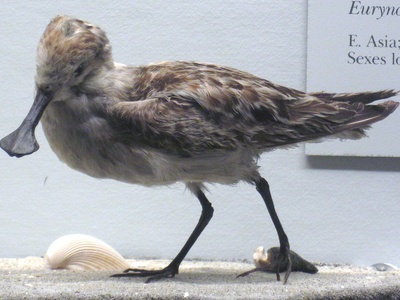
Spoon-billed Sandpiper
A tiny shorebird with an astonishingly unique bill, it breeds in coastal tundra but relies on tidal mudflats and salt swamps along its Asian migratory route.
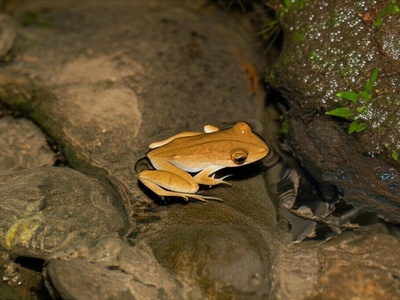
Bornean Flat-headed Frog
The world’s first known lungless frog, this bizarre amphibian absorbs oxygen entirely through its skin and lives in cold, fast-flowing streams in remote swampy forests.
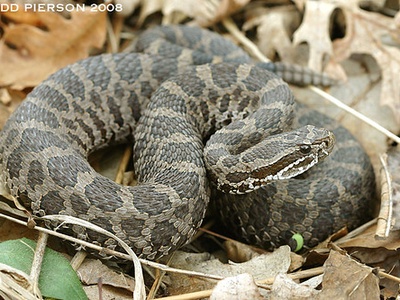
Eastern Massasauga Rattlesnake
A small, shy rattlesnake that relies on prairie wetlands and shoreline swamps for hunting and hibernation, threatened by habitat loss across its range.
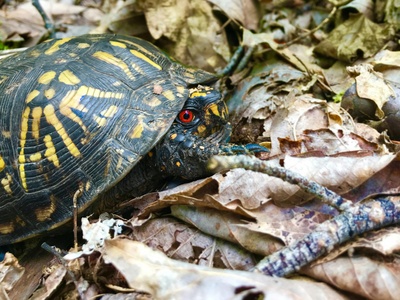
Wood Turtle
A semi-aquatic turtle known for its intelligence and rough, sculpted shell, it inhabits slow-moving streams with adjacent swampy meadows and forests.
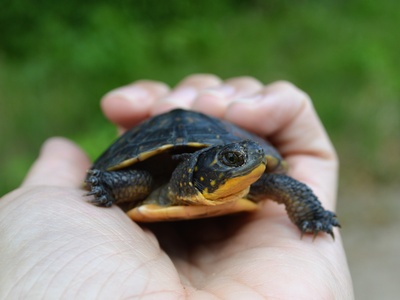
Blanding’s Turtle
With a distinctive, bright yellow chin and throat, this long-lived turtle prefers the shallow, quiet waters of marshes, swamps, and wetlands.
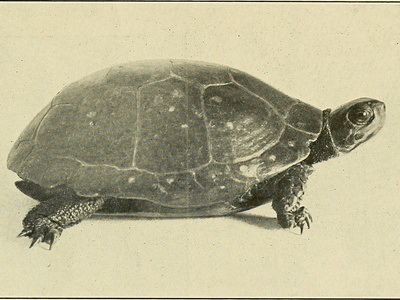
Spotted Pond Turtle
A striking black turtle with yellow spots, it is a secretive inhabitant of stagnant water bodies, such as ponds, marshes, and flooded swamps.
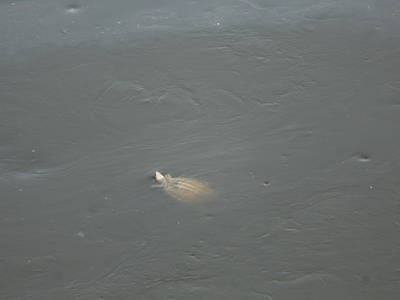
Three-striped Roofed Turtle
A large river turtle that often nests on sandbanks near deep, slow-moving rivers with adjacent swampy areas, now facing extinction from sand mining and poaching.
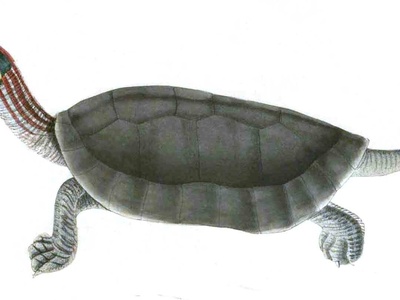
Red-crowned Roofed Turtle
The males of this critically endangered turtle display brilliant red and yellow head coloration during breeding season. It lives in deep rivers but depends on adjacent swamps.
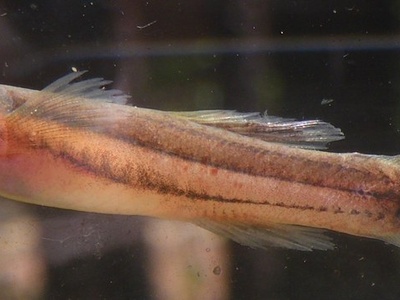
Swampfish
A small, eel-like fish adapted to dark, tannin-stained blackwater swamps. It has poor eyesight and relies on other senses to navigate and hunt.
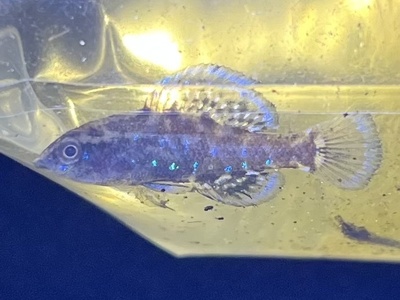
Okefenokee Pygmy Sunfish
A tiny, colorful fish that is a specialist of densely vegetated, acidic swamp environments like the Okefenokee Swamp, for which it is named.
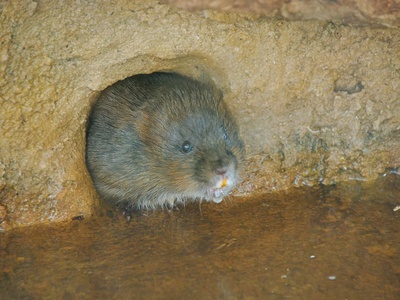
Water Vole
Often called ‘water rats’, these semi-aquatic rodents burrow into the banks of slow-moving rivers, swamps, and marshes, but have faced catastrophic declines in the UK.
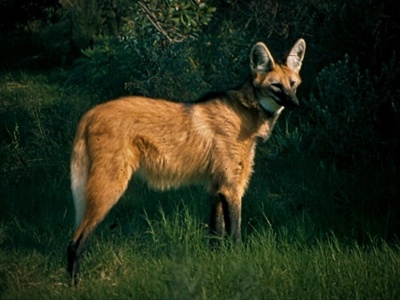
Maned Wolf
A long-legged canid of grasslands and scrublands, it frequently hunts in the seasonally flooded swampy areas of the Pantanal and Cerrado.
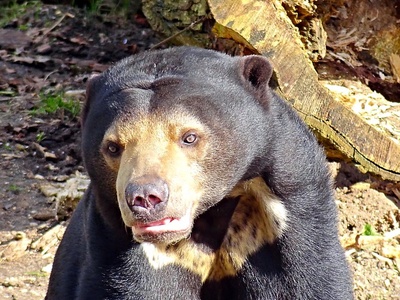
Malayan Sun Bear
The world’s smallest bear, its range includes the peat swamp forests of Borneo and Sumatra, where it uses its long tongue to extract insects and honey.
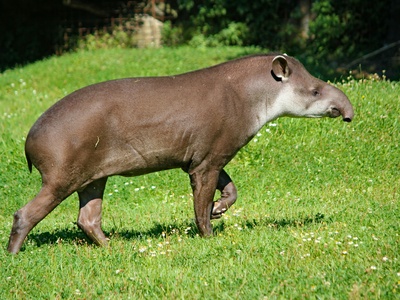
Baird’s Tapir
Central America’s largest native mammal, this gentle giant is an excellent swimmer that often seeks refuge from heat and predators in the dense swamp forests and wallows.
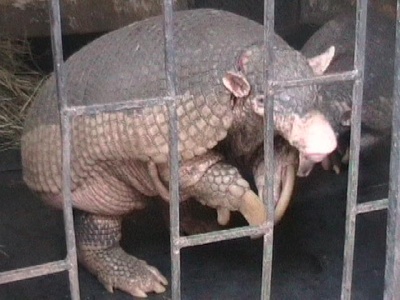
Giant Armadillo
The largest living armadillo, this powerful digger often makes its burrows near water sources, including the edges of swampy areas like the Pantanal.
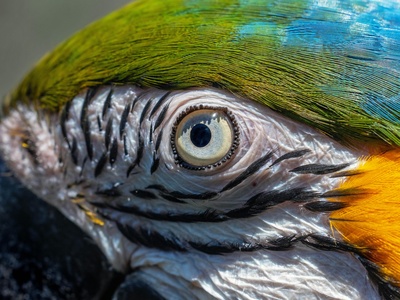
Blue-throated Macaw
This stunning macaw is critically endangered, with its entire wild population relying on ‘forest islands’ of Motacú palm trees within a seasonally flooded swampy savanna.
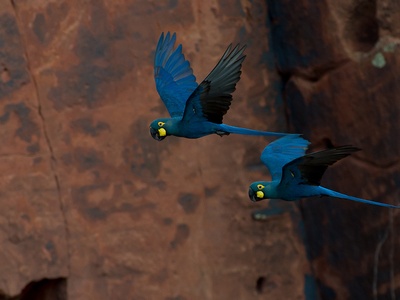
Lear’s Macaw
A large blue parrot that nests on sandstone cliffs, it forages almost exclusively on the nuts of the Licuri palm, often found in the swampy fringes of its dry forest habitat.
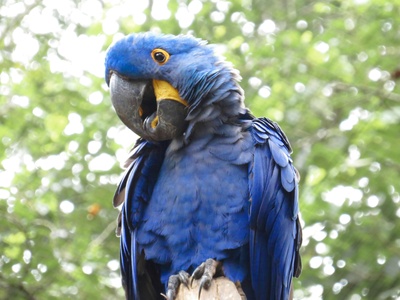
Hyacinth Macaw
The world’s largest flying parrot, this brilliant blue bird is a specialist of the Pantanal wetlands, using its powerful beak to crack palm nuts.
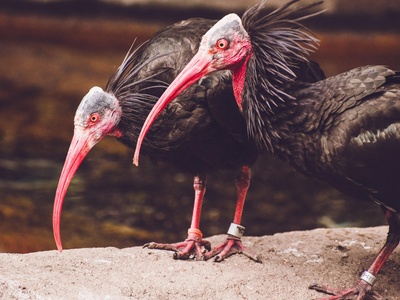
Crested Ibis
Also known as the Toki, this bird was brought back from the brink of extinction. It forages for insects and amphibians in rice paddies and swampy wetlands.
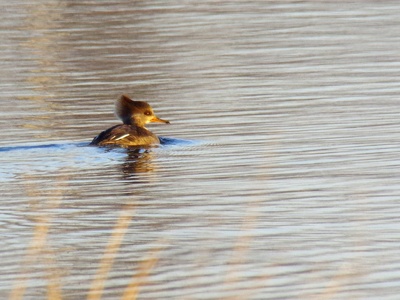
Hooded Grebe
An aquatic bird known for its dramatic courtship dance, it breeds only on a few high-altitude volcanic lakes and winters in coastal estuaries with swampy characteristics.
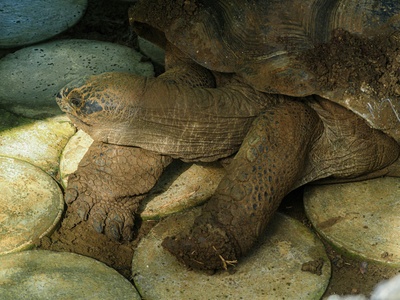
Cantor’s Giant Softshell Turtle
A bizarre, massive turtle with a smooth, flat shell, it spends most of its life buried in the sand and mud of slow-moving freshwater rivers and coastal swamps.
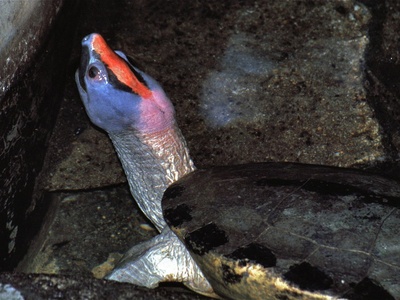
Painted Terrapin
Named for the male’s vibrant breeding colors, this turtle inhabits mangrove swamps and estuaries, migrating to sandy beaches to nest.
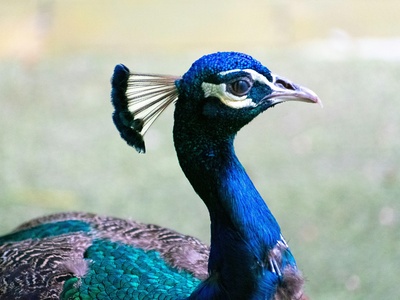
Malayan Peacock-Pheasant
A shy and beautiful pheasant decorated with iridescent green ocelli (eyespots), it stalks the floors of lowland and swamp forests.
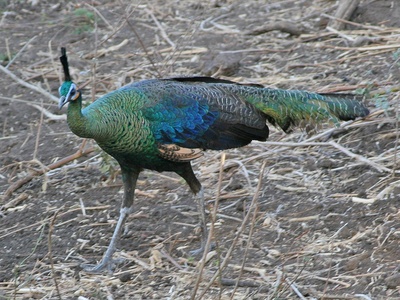
Green Peafowl
More threatened than its Indian cousin, this peafowl prefers riverine and swamp forests, where its booming calls are now heard with decreasing frequency.
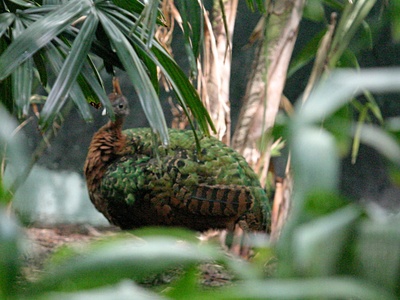
Congo Peafowl
The only true pheasant in Africa, this elusive bird lives deep within the swampy lowland rainforests of the Congo Basin.
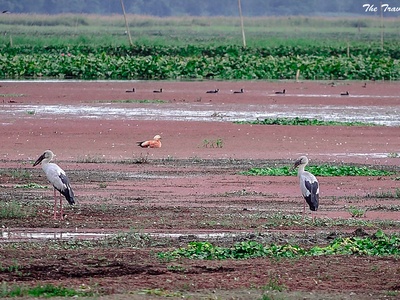
Greater Adjutant
A massive, scavenger stork with a bare head and neck pouch, it relies on wetlands and swampy garbage dumps for survival in its last remaining strongholds.
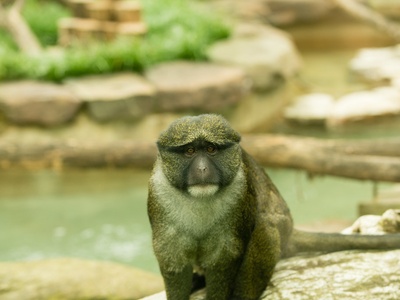
Allen’s Swamp Monkey
A stocky, greenish monkey with partially webbed fingers and toes, it is a true swamp specialist, often diving into water to escape predators.
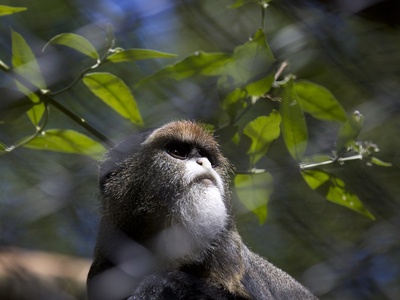
De Brazza’s Monkey
A secretive and striking primate with a white beard and orange crest, it is an excellent swimmer and is strongly associated with dense riverine and swamp forests.
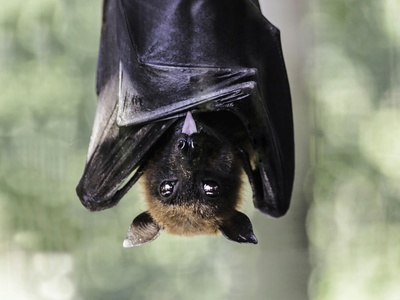
Florida Bonneted Bat
Florida’s largest and rarest bat, it roosts in old trees and relies on open spaces like marshes, swamps, and mangroves for foraging.
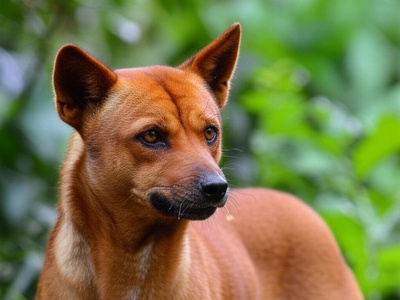
New Guinea Singing Dog
A rare wild dog known for its unique, melodic howl. It lives in the remote, high-altitude forests and swampy lowlands of New Guinea.
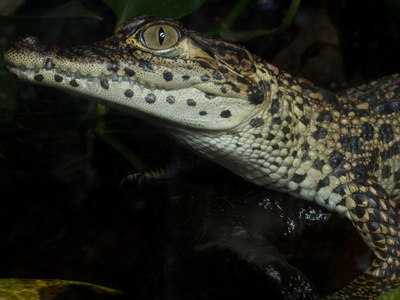
Cuban Crocodile
A highly aggressive and intelligent crocodile with a limited range, it is a specialist of the freshwater swamps of the Zapata and Lanier Peninsulas in Cuba.
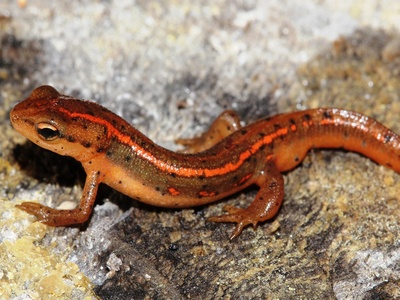
Striped Newt
A small, colorful newt that breeds in ephemeral, fishless ponds within fire-dependent longleaf pine and scrub ecosystems, a type of swampy habitat.
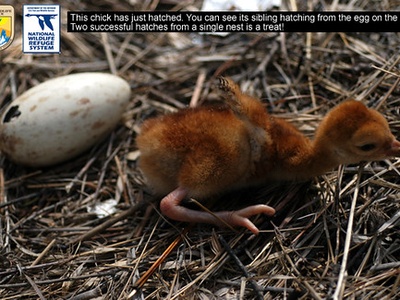
Mississippi Sandhill Crane
A non-migratory subspecies of the Sandhill Crane, this critically endangered bird is entirely dependent on the wet pine savanna and swamp habitat of a single wildlife refuge.
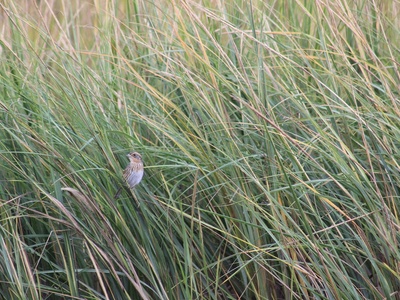
Saltmarsh Sparrow
A small, secretive sparrow that lives its entire life in coastal salt marshes, a habitat threatened by sea-level rise. It builds its nests just above the high tide line.
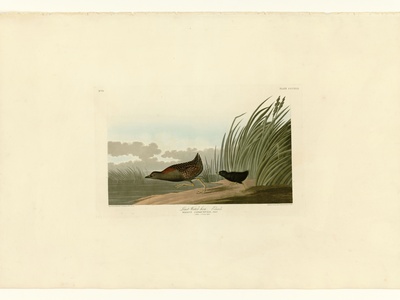
Black Rail
A tiny, mouse-like marsh bird that is incredibly difficult to see. It scurries through dense wetland vegetation and its populations have plummeted due to habitat loss.
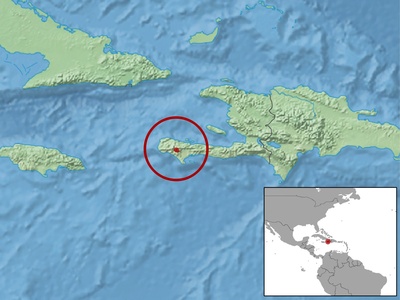
Macaya Breast-spot Frog
One of the smallest frogs in the world, this critically endangered species is known only from a tiny area of high-altitude cloud forest and associated swamps on Haiti’s Massif de la Hotte.
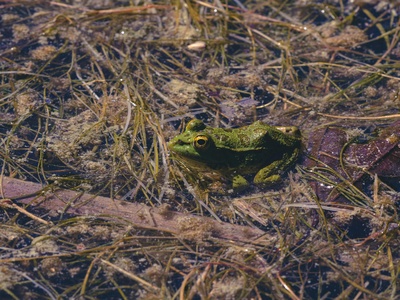
La Hotte Glanded Frog
Another critically endangered species from the same disappearing swampy cloud forests of Haiti, known for the large glands on its chest.
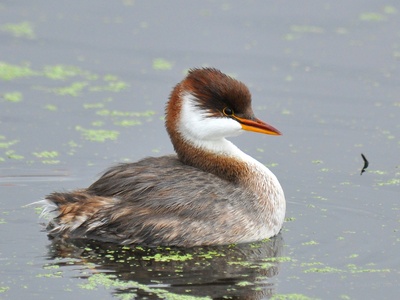
Titicaca Grebe
A flightless grebe found only on the high-altitude Lake Titicaca, it relies on the vast reed swamps for nesting and protection.
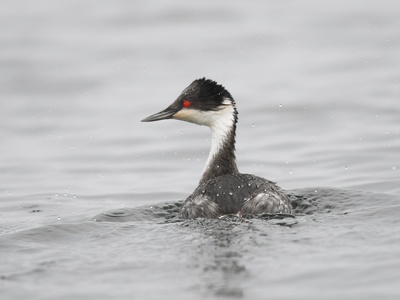
Junin Grebe
This flightless grebe is found on a single lake in the Peruvian Andes, where pollution and water management threaten its swampy reed bed habitat.
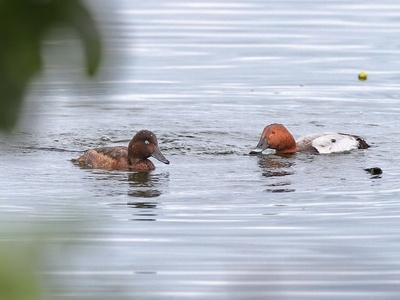
Baer’s Pochard
A critically endangered diving duck that breeds in lakes with rich aquatic vegetation and winters in freshwater lakes, rivers, and swamps.
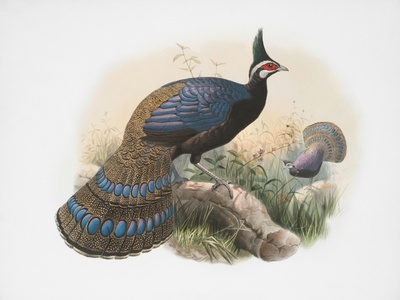
Bornean Peacock-Pheasant
An incredibly rare and shy bird, it quietly forages on the floor of the disappearing peat swamp and lowland forests of Borneo.
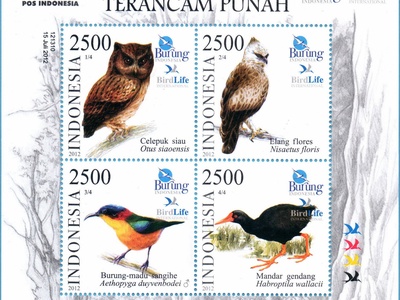
Siau Scops-Owl
Known from a single specimen collected in 1866, this owl is feared extinct, but may survive in the remnant forested swampy ravines of its tiny island home.
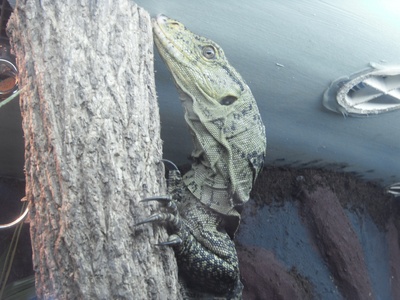
Gray’s Monitor
A large, fruit-eating monitor lizard that is highly secretive, living in the dense swamp forests of the southern Luzon and nearby islands.
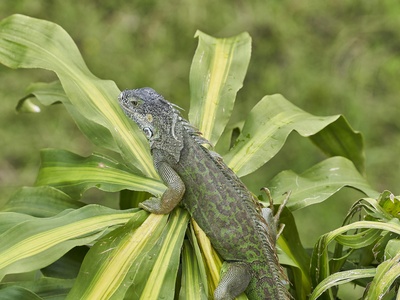
Panay Monitor Lizard
A close relative of Gray’s Monitor, this large, dark-colored lizard is also a fruit-eater and is restricted to the forested, often swampy, slopes of a single island.
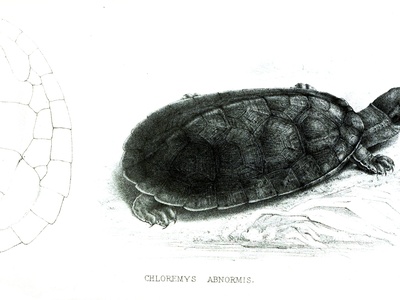
Central American River Turtle
Locally known as the “Hickatee,” it is the only surviving species in its ancient family. This fully aquatic turtle lives in large rivers and associated swamps and is critically endangered due to over-harvesting.
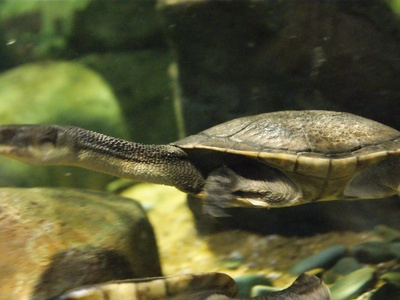
Roti Island Snake-necked Turtle
A unique turtle that cannot pull its long neck into its shell, it was hunted to near extinction for the pet trade and now survives in a few protected swamps on its native island.
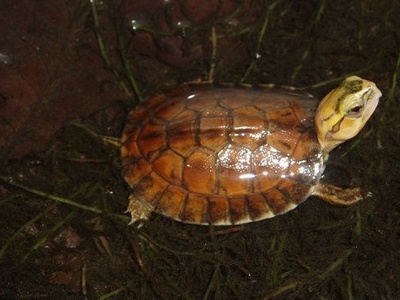
McCord’s Box Turtle
Believed to be extinct in the wild, this colorful turtle was known only from the pet trade until its habitat, a remote mountain swamp, was finally located.
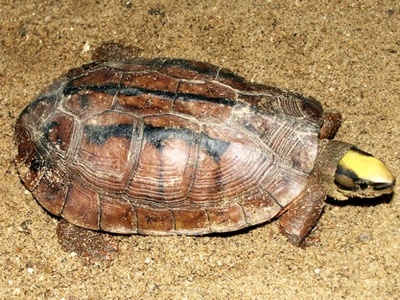
Golden Coin Turtle
Perhaps the most endangered turtle in the world due to its value in traditional medicine, its last wild habitats are believed to be remote mountain streams and associated swamps.
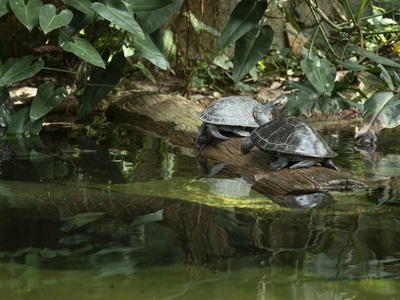
Vietnamese Pond Turtle
A critically endangered turtle that is endemic to a few lowland swampy wetlands in central Vietnam, now functionally extinct in the wild but surviving in assurance colonies.
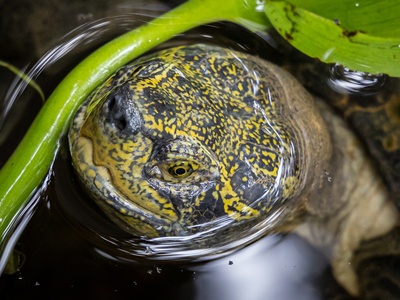
Yellow-headed Temple Turtle
A large freshwater turtle often found in temple ponds, its natural habitat consists of flooded fields, swamps, and slow-moving rivers.
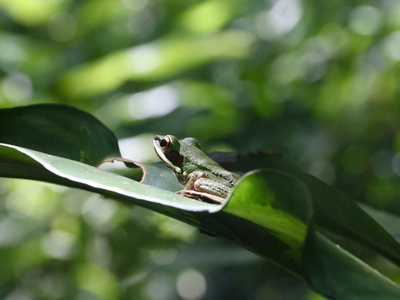
Striped Narrow-mouthed Frog
A tiny frog with a pointed snout that is an explosive breeder in temporary pools, puddles, and swamps, especially after heavy rains.
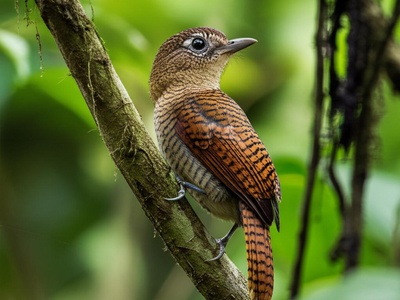
Cryptic Treehunter
Only recently described, this bird lived in the canopy of humid forests with swampy patches, and is likely extinct due to the complete destruction of its tiny habitat.
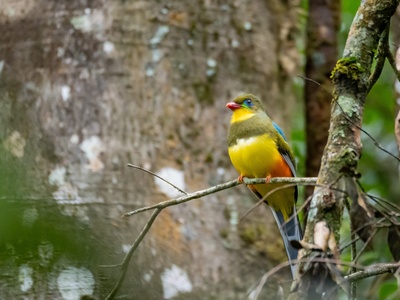
Javan Trogon
A beautifully colored bird that is rarely seen, inhabiting the humid, mossy, and often swampy montane forests of western Java.
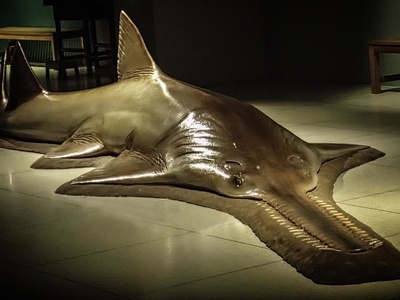
Largetooth Sawfish
A remarkable ray with a long, tooth-studded rostrum, it inhabits coastal waters, estuaries, and even travels far up rivers into swampy, freshwater habitats. Its population has been devastated by fishing.
